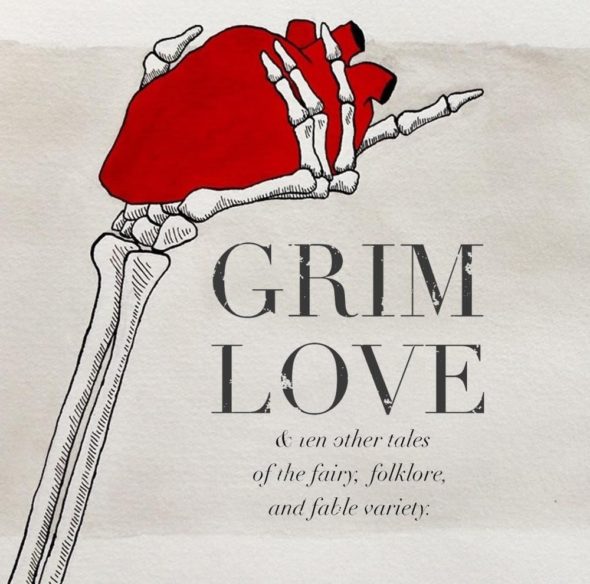I was complaining again. I was complaining about all the facets of writing that foreshadow success but don’t actually involve putting pen to paper: paying contest fees, researching publications, reading those nine familiar words that begin most disheartening emails: “Thank you for submitting, but I’m sorry to say…” The recipient of my whining was a fellow artist, a musician who quickly dismantled my diatribe by saying, “You know, Tyler, there’s such a thing as self-publishing. You don’t have to wait for the gatekeepers to say yes. Do it yourself.”
Self-publish? I thought. That’s what failures do. Yet, somehow, when spoken by a fellow artist, the words opened a new gateway to my creativity: do it yourself. DIY. It sounded dirty. Exotic even. A middle finger to The Man. More importantly, it sounded like the exact opposite of failure. It sounded punk.
There are many avenues to self-publication, all of which offer their own advantages and challenges. You can, for example, start a blog that will likely get lost in an overly-inundated Internet. Alternatively, you could drop thousands of dollars on a manuscript that requires interior and exterior design work, copy and content edits, marketing, manufacturing, and distribution. Options abound. Being a thirty-two-year-old with an embarrassing bank account and a much-too-late start on punk culture, I wanted something a little more risque. These factors led me to the “zine.”
Zines are cheaply-made and reasonably-priced publications, staple bound, hot off the photocopier press, and distributed amongst friends. They come out of the punk scene and give a voice to topics often underrepresented in literature through poetry, artwork, photography, etc., and can be quite raw in nature.
What’s most compelling about zines, though (considering the actual formatting is commonly uniform), are the attitudes that fuel them. Many regard social-justice issues, promote obscure philosophy, and utilize outrage culture. They can even be unprofessional and look like shit, which may be the whole point. This in mind, it was time to stop complaining and produce something. I settled on a zine. A fairy tale zine.
I called my long-standing friend Matthew Woods to see if he would do the illustrations. He agreed and Grim Love & ten other tales of the fairy, folklore, and fable variety was born.
I already had a vast collection of fairy tales written, so my part came easily. All I had to do was select pieces that complimented each other and send the prose off to Matt. He’d then send me illustration proofs back for review.
Like many writers, I wasn’t used to working with others, and the production meetings were invigorating. This energy inspired me to branch out further, into audio. I decided it would be unique and compelling for consumers not only to have a hard copy of the zine—full of short stories and illustrations—but also to have an opportunity for listening. I considered reciting the stories myself but realized, to reach a broader audience and to formulate a more dynamic product, I should invite 10 other artists to record the stories with me. I asked pop-punk singers (Allison Weiss, Chris Farren, Julia Nunes), professional wrestlers, actors, thespians. And, to my surprise, everyone said yes. Not only that, they were grateful to be a part of the project—for free. And they were thanking me.
Eventually, I uploaded the tracks to Bandcamp and used semi-professional sound files to accompany the zine. When Matt was done with the illustrations, I imported them into InDesign to finalize the product. Grim Love, seemingly by happenstance, had become a multi-media zine of flash fiction, macabre illustrations, and audio recordings. Now all we needed was a release date.
Matt and I wanted to make the occasion special to honor our hard work, so we selected an African music venue in Harlem called Silvana that let us use their basement for free, which seemed fitting to our DIY ethos. I printed a hundred zines—folding and stapling them myself—and, to my delight, the release party was filled with people, all there paying homage to this crazy idea I’d had half a year earlier. It was surreal—one of the best rewards a writer can achieve.
The whole thing couldn’t have gone better in terms of producing a high-quality product with friends. But so much more came out of the endeavor, and the following are reasons I’d encourage any fledgling writer to create a zine:
- Zines teach you to relax. With the leeway of publishing yourself, you don’t have to worry about rejection or consent. You get to be playful while producing whatever the hell you want.
- It’s a great opportunity to collaborate and you’ll learn how to ask for help. No major production is ever done alone so it’s important to start relying on others who have more expertise than you. Use self-publishing as an opportunity to learn from friends and incorporate their knowledge into your own craft.
- Publishing a book is complex and authors generally don’t have their hands on every moving part. As the creator of a zine, you get to do everything on a small scale: editing, producing, marketing, distributing. This can help writers become savvy to each field and gain an appreciation for how difficult each task can be.
- Releasing a project will teach you to have realistic expectations. Try selling 100 copies before setting your sights on 100,000 copies—this will give you necessary perspective. Otherwise, it’s easy to become disappointed in literary pursuits. It’s easy to turn bitter and resentful. Releasing Grim Love taught me patience, and with any future publications, large or small, I’ll know where to set my expectations.
Find Grim Love at https://www.tylerdunning.com/shop/.
Listen to the audio tracks at https://grim-love.bandcamp.com/.
Look for the sequel, Grimmer Lover, available on Valentine’s Day 2019.

